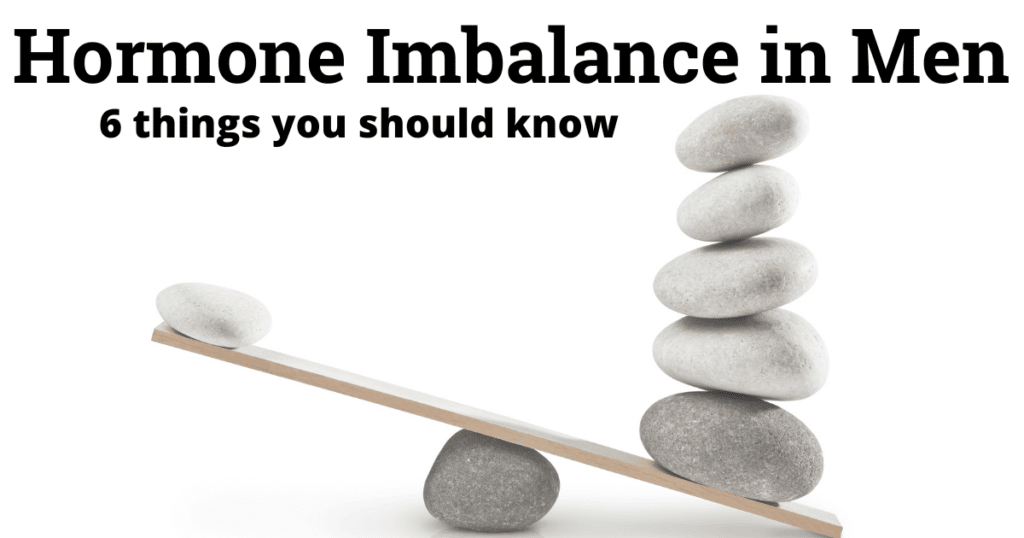Hormones affect much more in the body than just sexual function. They travel throughout the body from various endocrine glands, delivering messages to organs and tissues and instructing them on what to do to keep everything running smoothly. Hormones manage many processes: your metabolism, your sleep, your mood, and your reproductive and sexual functioning.
Because something as natural and inevitable as aging can profoundly impact a man’s hormone production, hormone imbalance might be a problem that many men face in their lifetime. That’s why it’s so important to familiarize yourself with the key signs that may signify that your hormone levels have changed.
We’ve compiled this list of the six primary ways hormone imbalance can manifest in men, so you can educate yourself and recognize the male hormone imbalance symptoms when you experience them.
1. Changes in Brain Function
There are many studies that show that higher levels of testosterone in men may result in improved memory and learning One particular study illustrates that lower testosterone in older men correlates with worse visual-spatial memory. These results indicate that as testosterone drops, people may experience a diminished ability to understand and retain new information.
If you notice a change in your memory or your ability to focus, it may be time to reach out to an expert and request a test of your hormone levels. For example, you can schedule a free consultation with a medical provider at Limitless Male Medical Clinic.
2. Changes in Mood
The psychotherapist Jed Diamond has dedicated his career to studying how testosterone fluctuations influence men’s emotions. He has written extensively about how hormones impact mood, and he claims that some men have their own version of menopause when their testosterone levels drop later in life – this is known as andropause.
In an interview, he asserts that men’s hormone imbalances can cause them to be irritable, angry, and depressed. He explains that many men don’t seek medical treatment when they experience these changes in their mood because they tend to blame external factors for their feelings rather than internal ones. He encourages men to be cognizant of the symptoms of testosterone imbalance and to ask for help.
Endocrinologist Dr. Bradley Anawalt agrees that men should seek out professional help when they suspect they have a hormone imbalance and cautions them to get tested before taking a testosterone replacement because he believes testosterone therapy is a delicate endeavor that should be managed by an experienced medical provider. That’s why discussing your options with a qualified medical provider is a good first step.
3. Weight Gain
Hormones control metabolism. They send signals to your body to let you know when to eat. If your testosterone levels drop, your metabolism may slow, resulting in weight gain.
Sometimes, the weight gain can be concentrated in certain areas. For example, the Mayo Clinic cites breast discomfort and swelling as a sign of low testosterone in men. If you notice a difference in how your body processes food, then you should consider having your hormone levels checked.
4. Loss of Energy
Dr. Anawalt cites a lack of energy as a sign of hormone imbalance, as does the Mayo Clinic. Mayo Clinic also states that it may be possible that fluctuations in testosterone can lead to more interrupted sleep, which can in turn decrease your energy throughout the day.
If you notice a change in your normal sleep patterns or in your typical energy levels and your attempts to get more sleep don’t make a difference, then it may be an indication that there could be something wrong with your hormone levels.
5. Changes in Interest in Sex and Sexual Function
Most people are aware of the link between hormones and sexual functioning, but they may not understand that changes in sexual behavior can be explained by hormone imbalance. Low testosterone can not only impact a man’s ability to achieve and maintain an erection but also his libido.
Treating low testosterone with testosterone replacement therapy has become more and more of a common and widespread practice. In 2020, the American College of Physicians officially recommended testosterone replacement therapy for patients who struggle with their sexual functioning.
6. Risk for Other Health Conditions
MedicineNet asserts that a decrease in testosterone can put men at risk for other health conditions, such as type 2 diabetes, coronary artery disease, and metabolic syndrome.
This emphasizes why it’s imperative for you to be vigilant about the symptoms of hormone imbalance and seek out a doctor when you experience them.
If you’re not sure if you may be experiencing hormone imbalance, the professionals at Limitless Male Medical Clinic are here to answer any of your questions. Explore other helpful resources – including testimonials, ebooks, and an FAQ – to learn more about testosterone replacement, peptide therapy, and more.




